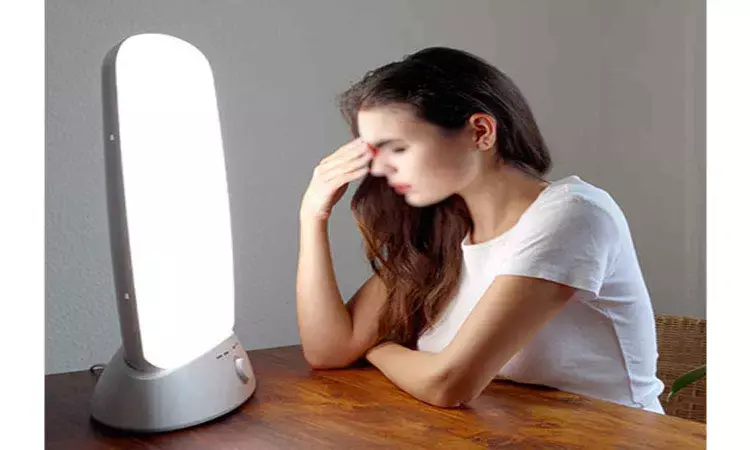- Home
- Medical news & Guidelines
- Anesthesiology
- Cardiology and CTVS
- Critical Care
- Dentistry
- Dermatology
- Diabetes and Endocrinology
- ENT
- Gastroenterology
- Medicine
- Nephrology
- Neurology
- Obstretics-Gynaecology
- Oncology
- Ophthalmology
- Orthopaedics
- Pediatrics-Neonatology
- Psychiatry
- Pulmonology
- Radiology
- Surgery
- Urology
- Laboratory Medicine
- Diet
- Nursing
- Paramedical
- Physiotherapy
- Health news
- Fact Check
- Bone Health Fact Check
- Brain Health Fact Check
- Cancer Related Fact Check
- Child Care Fact Check
- Dental and oral health fact check
- Diabetes and metabolic health fact check
- Diet and Nutrition Fact Check
- Eye and ENT Care Fact Check
- Fitness fact check
- Gut health fact check
- Heart health fact check
- Kidney health fact check
- Medical education fact check
- Men's health fact check
- Respiratory fact check
- Skin and hair care fact check
- Vaccine and Immunization fact check
- Women's health fact check
- AYUSH
- State News
- Andaman and Nicobar Islands
- Andhra Pradesh
- Arunachal Pradesh
- Assam
- Bihar
- Chandigarh
- Chattisgarh
- Dadra and Nagar Haveli
- Daman and Diu
- Delhi
- Goa
- Gujarat
- Haryana
- Himachal Pradesh
- Jammu & Kashmir
- Jharkhand
- Karnataka
- Kerala
- Ladakh
- Lakshadweep
- Madhya Pradesh
- Maharashtra
- Manipur
- Meghalaya
- Mizoram
- Nagaland
- Odisha
- Puducherry
- Punjab
- Rajasthan
- Sikkim
- Tamil Nadu
- Telangana
- Tripura
- Uttar Pradesh
- Uttrakhand
- West Bengal
- Medical Education
- Industry
Light therapy may help elevate mood in people with a concussion

Patients with Traumatic brain injury often develop persistent problems associated with sleep, concentration and depression. Blue light exposure to these patients may result in depression elevation according to a new study.
Researchers have found that exposure of people with mild traumatic brain injury to early morning blue light therapy may decrease depression and other concussion symptoms. The preliminary study released will be presented at the American Academy of Neurology's 72nd Annual Meeting in Toronto, Canada, April 25 to May 1, 2020.
"Patients with mild traumatic brain injury, like a concussion, often develop persistent problems associated with sleep, concentration and depression," said study author William D. Killgore, Ph.D., from the University of Arizona College of Medicine in Tucson. "Morning blue light exposure has been shown to lead to the improved circadian rhythm of the body's sleep-wake cycle, which is linked to improved sleep, better mood and daytime alertness."
The double-blind, randomized study involved 35 people with an average age of 26 who had been diagnosed with concussion within the past 18 months. The participants used a tabletop device that shines bright light for 30 minutes each morning for six weeks. Seventeen people received blue light therapy and 18 people received a placebo amber light therapy.
At the beginning and the end of the study, both groups completed tests to measure symptoms of depression and other concussion symptoms, such as headache, fatigue and problems with sleep, memory and concentration.
The study found that the people who received the blue light therapy had lower scores on a test of depression, the Beck Depression Inventory, than the people who received the placebo light therapy. Raw depression scores showed a significant decline in only the blue group. The people in the blue light group improved by 22% on the test of depression, compared to a 4% worsening in the mood for the people in the placebo group.
The improvement in depression scores among the people in the blue light group was also linked to improvements in other concussion symptoms such as sleep disturbance, fatigue, concentration, restlessness, and irritability, while there was no such relationship for the people in the placebo group.
"These results reinforce that blue light therapy may be an effective, non-drug treatment for concussion and that improvements in depression may result in improvement in both mental and physical concussion symptoms, and thus quality of life," said Killgore.
The main limitations of the study were relatively small sample size and that not every participant had clinical depression, which is a more severe form of depression, so the study may not represent all people with mild traumatic brain injury.
Killgore said, "Limitations notwithstanding, the findings give a promising treatment approach to those suffering from mood disturbances following a concussion."
for further references log on to:
American Academy of Neurology
Dr Kamal Kant Kohli-MBBS, DTCD- a chest specialist with more than 30 years of practice and a flair for writing clinical articles, Dr Kamal Kant Kohli joined Medical Dialogues as a Chief Editor of Medical News. Besides writing articles, as an editor, he proofreads and verifies all the medical content published on Medical Dialogues including those coming from journals, studies,medical conferences,guidelines etc. Email: drkohli@medicaldialogues.in. Contact no. 011-43720751


